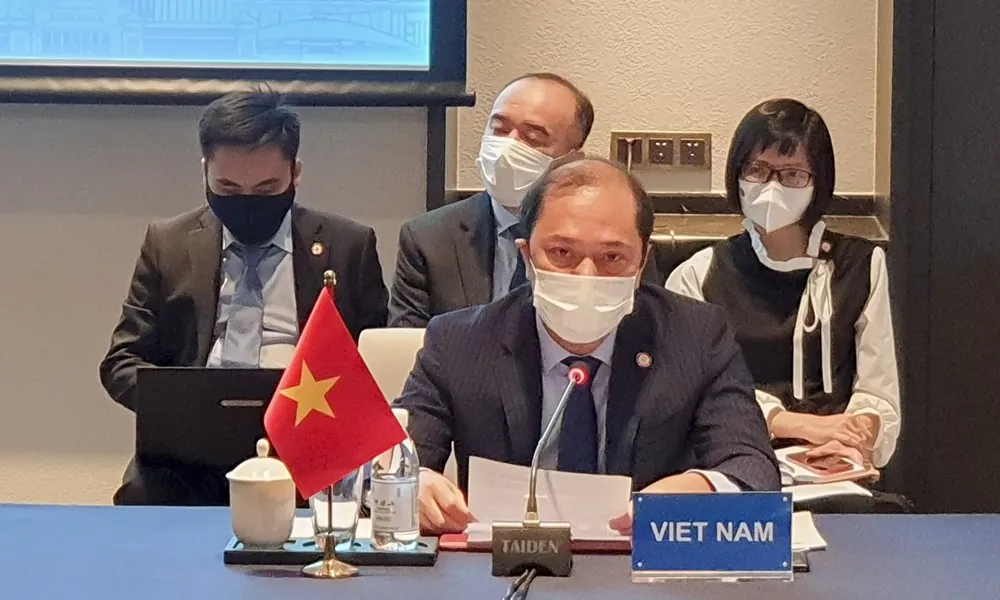Code of Conduct in the South China Sea must be substantive: Vietnam diplomat
Countries express concern that unilateral activities in the South China Sea (called East Sea by Vietnam) recently have increased tensions and eroded trust.
The negotiations of the Code of Conduct in the South China Sea (COC) must be substantive and consistent with international law, the UN Convention on the Law of the Sea 1982 (UNCLOS), Deputy Minister Nguyen Quoc Dung said at the 19th ASEAN-China Senior Officials’ Meeting (SOM) held in Chongqing, China on June 7.
| Vietnam's Deputy Minister Nguyen Quoc Dung at the event on June 7. Photo: MoFA |
Dung called on related parties to seriously take into account the implementation of the Declaration on the Conduct of Parties in the South China Sea (DOC) in negotiating COC.
He expressed concern over existing unilateral actions that violate the legal rights of littoral countries in the East Sea. These actions increase tensions and run counter to the joint efforts of ASEAN-China.
"Maintaining peace, stability, and security in the sea is the common interest of both ASEAN and China," Dung said.
At the meeting, the participants noted that ASEAN and China are still making efforts to implement the DOC despite the negative impacts of the Covid-19 pandemic.
They also expressed concern about the complicated developments of the East Sea recently, including unilateral activities that go against international law, erode trust, and increase tensions. Those developments harm the implementation of the DOC and the negotiation of the COC, according to Vietnam’s Ministry of Foreign Affairs (MoFA).
The 19th SOM DOC took place during the Special ASEAN-China Foreign Ministers’ Meeting held on June 6-8.
“China and ASEAN members have agreed to conclude the COC at an early date, a goal we are confident and determined to achieve,” China’s state-run press agency Xinhua News Agency cited Chinese State Councilor and Foreign Minister Wang Yi on May 23.
ASEAN and China signed the DOC in 2002 that promised to “enhance favorable conditions for a peaceful and durable solution of differences and disputes among countries concerned”, according to the Asia Maritime Transparency Initiative (AMTI).
However, the formulation of implementation guidelines got adopted only in July 2011, as China and ASEAN had difficulties agreeing on consultation procedures. In the DOC and the COC, China did not agree to the fact that it could only consult on ASEAN consensus-based drafts. China demanded to be directly involved in the negotiations even though not a member of ASEAN, according to Hoang Thi Ha, Lead Researcher for Political-Security Affairs at the ASEAN Studies Centre of ISEAS-Yusof Ishak Institute.
| Representatives of ASEAN and China at the 18th SOM on DOC in Da Lat, Vietnam in October 2019. Photo: VNA |













